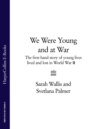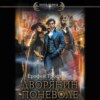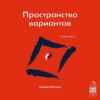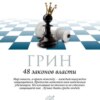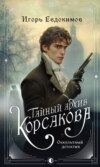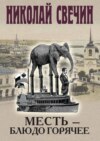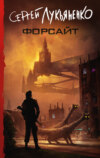Читать книгу: «We Were Young and at War: The first-hand story of young lives lived and lost in World War Two», страница 2
6 September 1939
God! What’s going on! Panic, mass exodus, defeatism. The city has been deserted by police and other state institutions and is just waiting in terror for the entry of German troops. What’s happened to people? They just can’t stay put, running around in fear and confusion, pointlessly shifting worn out pieces of furniture. My duty ends at one in the morning. I go and wake up Rysiek for the next shift. He’s in a pessimistic mood, it’s from him I hear the so-called plans to evacuate the city. He says that in the office where his father works everything is packed up and that they’ll be leaving Łódź any moment. But how? I’m told the Germans are going to take the city any moment now.
Run, run away, further and further away, step by step, wade, cry, forget—anything to be as far as possible from the danger. My dear, oversensitive mother is showing self-control. She comforts Mrs Grodzieńska and talks her out of her crazy plan to run away, gradually calming down the mass psychosis of a crowd about to be slaughtered. Father’s losing his mind, he doesn’t know what to do. Other Jewish neighbours come to talk. They talk about the order given to all those fit to carry arms to leave the city so as not be sent by the enemy to labour camps. They don’t know what to do. They deliberate, then decide to stay put. People are leaving all the time: hordes of men are walking to a rallying point in Brzeziny. Reservists and conscripts are leaving the city. Behind them, women with bedding, clothing and food in bundles on their backs. There are small children with them. All our commanding officers have left the city and their posts, so we appointed ourselves as a joke and kept up the pretence until noon.
8 September 1939
Łódź has been occupied. It’s been quiet all day today, too quiet. This afternoon I’m sitting in the park drawing a portrait of one of the girls when suddenly there’s terrifying news. Łódź has surrendered! German patrols are in Piotrkowska Street. Fear, surprise…surrendered without a fight? Perhaps it’s just a tactical manoeuvre. We’ll see. In the meantime all talk has stopped, the streets are empty, faces and hearts have hardened into stern severity and hatred. Mr Grabiński comes back from town and describes how the local Germans have been greeting their compatriots. The Grand Hotel, where the generals are to stay, is bedecked with garlands of flowers. Civilians—boys and girls—are jumping into military cars with the joyous cry ‘Heil Hitler!’, speaking German loudly in the streets. People who used to be quiet, patriotic and civil are now showing their true faces. The street lamps have been switched back on in the evening. No danger of air raids now.
That night, as German troops were welcomed with fireworks and dancing in Łódź, hundreds of Jews were burnt to death in a Bedzin synagogue, just over 100 miles south of the city. Dozens of Polish towns were in flames, but despite German ‘cleansing measures’ against thousands of Poles and Jews, Britain and France ruled out coming to Poland’s immediate assistance, themselves under pressure to mobilize for war.
9 September 1939
In the morning an announcement was posted in Polish and German (German first!) calling for calm when the German troops enter the city. Signed: Citizens’ Committee of Łódź. Later, I went a bit further out to watch the troops arrive. Lots of cars, the soldiers look quite ordinary, their uniforms different from the Polish ones though—they are steel green. Their faces are self-confident, swashbuckling. The conquerors! A car full of high-ranking officers with severe faces passes by, quick as lightning. People are quiet, they look on impassively. Hush! We go back to our blocks and sit around on benches, talking and joking. What the heck!
13 September 1939
Rosh Hashanah holiday [the day before Jewish New Year] is sad, drab, same as any other day. The same dry bread with a small piece of herring (only the herring makes it different from any other day). The order came today that the shops are to be open tomorrow. For Jews, this is the worst blow for a long time—the shops open on Rosh Hashanah! And the synagogues are to stay closed. Nowhere to pray together for mercy, nothing. All our basic freedoms are being taken away from us. I’m not a traditionalist and I always thought it was liberating to duck out of prayers, but these orders are painful to Jewish people. Now I understand what faith gives to believers—they are at peace, serene. To take away a man’s only consolation, his faith, and to forbid a life-affirming religion, it’s an unforgivable crime. The Jewish people won’t let Hitler get away with it. Our revenge will be terrible.
15 September 1939
This is the first time mum went to buy bread and came back without. She gets up at five a.m. and stands in the queue until seven, when the bakery opens and gives out one-kilo loaves. That’s how it’s been for a week now. Today there was no more bread when it was her turn. Maybe one has to start queuing at one in the morning. In town, Hitler’s agents take Jewish people out of the food queues, so that poor Jews who have no [Polish] maid are condemned to death from starvation. Twentieth-century German humanitarianism! The Rabinowiczes and their neighbours came back today from their wanderings. They look terrible. Their two sons were on another cart and they haven’t come back. Nobody knows where they are. They talk of exchanges of fire, searching for places to sleep, going on foot for miles, dangers and so on. It makes my flesh creep. There are funny moments too. Humour can be found anywhere. Laughter in the midst of calamity.
With Warsaw itself under continuous artillery fire and merciless aerial bombing, after two weeks on the road Edward’s family decided to head home. Coming across a quiet village south of the capital, they stopped for a few days of rest.
15 September 1939
Last night the Germans occupied all the places we have abandoned. They sent their cars in first, which moved pretty fast along the pavements so as to avoid the sand we put on the roads to slow them down.
They’ve set up camp next to the forest, surrounded by machine guns and cars. Their uniforms are made out of a greyish-green material. Their helmets are very smooth. They wear swastikas and eagles and they are in black and white, the German national colours.
People in the local villages have changed sides quick as a flash; they’ve turned German overnight. They bow when they see a German officer in the street. The Germans look down on them with scorn, but they don’t seem to mind. German soldiers go round asking for cigarettes and tobacco, and the village girls flirt with them, dressed up in their Sunday best. I try to avoid seeing any of this, so I sleep in the stables.
17 September 1939
We went to bed in our clothes but couldn’t sleep because of the shooting. By the morning German planes had pushed our infantry back into the forest. They shot at our soldiers and civilians shot at them too. It’s all a complete mess. In the evening I decided I had to get some sleep. I was too tired to care about what might happen.
While Edward missed the events of that day, in Łódź, Dawid recorded what news he could, but admitted to being confused.
17 September 1939
It turned out today that our gymnasium has actually been disbanded. Gymnasium Number 1 is being merged with the girls’ school. The buildings have been occupied. I feel despair overtaking me. In the afternoon I was out walking with [my friend] Jadzia when Marek ran up to us with strange, terrifying news. Russia has broken the non-aggression pact with Poland and has occupied our eastern areas. We still don’t have the details. I couldn’t understand anything at first. Later on, German, Soviet, English and Polish radio gradually clarified the situation. The Soviet government has mobilized its troops as it felt threatened (so much for their non-aggression pact with the Germans). Since there is no Polish government in Warsaw any more, Russia feels obliged to defend Belarus and the Ukraine against Germany. The Polish High Command has declared that it will not fight with Russia (so this act of aggression is clearly convenient in spite of everything) but will concentrate all its forces against the Germans. And the English radio commented that evidently the Russian army will cooperate with the Polish army. So what’s going on? Could it be that Russia has remembered that Nazism is its worst enemy, after all?
Contrary to Dawid’s hopes, Soviet troops began to occupy eastern Poland in accordance with the secret addendum to the German-Soviet Non-Aggression Pact signed in August 1939. As Poland was split into two spheres of influence, all the Polish Army’s hopes of regrouping in the east for another offensive were dashed. In occupied Łódź, Dawid enjoyed the return of at least some signs of normality.
19 September 1939
I went to school by tram in a clean uniform (I had to walk back, and will have to walk tomorrow, no money for the tram). There are fifteen girls and eighteen boys—from both gymnasia. We had three lessons, same as yesterday. Revision, mostly. We didn’t get any reports. There were a few new teachers, not many. We don’t know if we are going to be taught with the girls or separately, because it’s a squeeze. If separately, we’ll probably be the afternoon shift.
At five in the afternoon, I listened to Hitler on the radio. He spoke from ‘die befreite Stadt Danzig’ [German, ‘the liberated city of Danzig’, or Gdańsk in Polish] after an ovation from the crowd. That speech showed he doesn’t deserve his reputation as a great statesman. He threw himself around, screamed, insulted, pleaded, buttered people up, but most of all he lied and lied. He lied that Poland had started the war, he lied about the persecution of Germans in Poland (‘Barbaren!’). He lied about his good peaceful intentions, etc. Then he came out with a string of insults directed at the Polish authorities, Churchill, Cooper (Duff) and Eden. He talked about his desire for a deal with England and France. He talked about the injustice of the Treaty of Versailles, saying that Poland will never exist in the borders decided by the Treaty. He said that the English effort to overthrow the ruling German government would never succeed—the best proof we’ve heard that the English are seriously attempting such a thing. At the end, he talked about his good relations with Russia (?…) and the impossibility of a German-Russian conflict. He ended his speech with a few phrases, full of pathos, about Gdańsk.
Three days later, Edward once again passed through Łódź, this time on his way home.
22 September 1939
The city doesn’t look like there is a war on; it’s back to normal. Schools have been open again since 11 September. There are lots of German posters on the walls and Hitler’s flags all over. I feel like a stranger in my own country. There’s not much food in Łódź and people spend hours queuing for potatoes. We walk from Łódź to Kalisz.
23 September 1939
We spend the night at the train station with 300 other people, waiting for a train which never comes. It finally arrives at about 3 p.m. It moves very slowly and I can see the wrecks of burned-out trains, and some freshly repaired bridges. We reach Kalisz at 8 p.m., where we wait for an hour. From there, we go straight on to Ostrów. At 3:30 a.m., after three weeks on the move, I am back at home. Everything is just as we left it, because our aunt lived there while we were away. The first thing we do is have a bath. You can imagine what we looked like at the end of our ‘adventure’!
Edward’s diary breaks off here. Within days, Poland surrendered and his home town of Ostrów was annexed into the Third Reich. As Polish language and culture were banned, all Polish citizens were subject to an intensive programme of Germanization. While the fate of Łódź and its 250,000-strong Jewish community remained undecided, Dawid described the immediate changes in the life of his neighbourhood.
3 October 1939
Though it is just about possible for most clerks, workers and shopkeepers to go back to their work, it’s harder for Jews. Business people, shop owners, middlemen, merchants, etc., all are too afraid to go out in case they are picked up for forced labour and so lose their livelihood. They try selling things door-to-door, like most of our neighbours do—stockings, bread, sugar, knitted clothes, etc. Everyone has something to sell, the goods pass though the hands of dozens of middlemen, wholesalers and traders, but none of this can save the Jewish people from a rapid slide into poverty. My father has no work, he is just suffocating at home. We have no money either. A total fiasco!
4 October 1939
Unfortunately, I haven’t managed to avoid the miserable fate of other Jewish people—forced labour. Some older people talked me into going to school along Wólczańska Street—a shorter route, and I went that way yesterday: there were swastikas on all the houses, lots of German cars, masses of soldiers and local Germans wearing swastikas. I managed to get through it yesterday, and today, emboldened, I went the same way. Near Andrzeja Street a German pupil ran up to me with a big stick in his hands and shouted;‘Komm arbeiten! In die Schule darfst du nicht gehen!’ [Come to work! You can’t go to school!]. I didn’t protest—I knew that a student card wouldn’t help. He took me to a square where some Jews had been put to work picking leaves off the ground. The sadist wanted to force me to climb some 2-metre high fence, but seeing that I wouldn’t do it, he went away. The work in the square was supervised by a soldier, who also had a big stick, and crudely ordered me to fill puddles with sand. I’ve never been so humiliated, I saw the smiling mugs of passersby laughing, enjoying the misfortune of others. The stupid, abysmally stupid louts! It’s they who should be ashamed, our tormentors. Humiliation inflicted by force is not humiliation! But anger, a helpless rage boils inside anyone forced to do this stupid work while being taunted. There is only one answer: revenge! After half an hour’s work, the soldier called all the Jews (some of whom had their caps turned back to front ‘for fun’), lined us up, ordered one of us to take back the spades and the rest to go home. Playing at being magnanimous!
I arrived at school in the middle of the first lesson, late for the first time in my entire school career. The teachers can’t do anything about it: ‘for reasons outside the Jews’ control’. I went home the old way, through Kilinski Street. At home mum was frightened to hear how I’d been forced to work. In the evening we found out that one of the Germans living in our street ‘keeps an eye’ on the Jews in our block of flats. This really upset my poor nervous parents. Meanwhile, at school, they’ve announced that pupils who don’t pay a sum of money will be barred. What’s going to happen to me?
CHAPTER TWO The German Invasion of Western Europe April-September 1940
‘Please send me a map of France, Belgium and Southern England’
From September 1939, Britain and France had been preparing to defend themselves against Germany’s Blitzkrieg, or ‘lightning war’, which had defeated Poland so quickly. Britain had no conscript army and spent the opening months of the war building up its manpower, while sending the five existing regular divisions of the British Expeditionary Force (BEF) across the Channel to France in December. France called up all 101 divisions of its army, still haunted by the experience of the First World War. Many soldiers were deployed to the Maginot Line, concrete defences built along the border with Germany, which the French hoped was inviolable and would prevent a surprise attack. By the spring, Hitler had already postponed his invasion of Western Europe twice, once because of the autumn mud and the second time after an intelligence breach.
To the majority of people in Britain and France in the winter of 1939-40, the war hardly seemed real. Aside from the absence of enlisted fathers, sons and brothers, nothing much seemed to happen. In London and Paris, cafés and restaurants were full; theatres and cinemas opened as usual. In Britain the period became known as ‘the phoney war’, in France ‘la drôle de guerre’, the funny or odd war. Many of the British children evacuated from the cities in September 1939, in anticipation of devastating German bombing raids, returned home. By April 1940 the German generals had drawn up a new strategy and were now waiting for a period of favourable weather to launch their offensive in the West.
Seventeen-year-old Herbert Veigel, from the provincial town of Heilbronn in southern Germany, had just completed his training in radio communication with the Luftwaffe. On the outbreak of war he had signed up as a volunteer, lying about his age and forging his father’s signature. Six years in the Hitler Youth had groomed him as a soldier and prepared him for the ‘unavoidable war’ to win new German ‘living space’ in foreign lands. Soldiering also offered him an escape from his pious parents and the tedium of school. The youngest boy of seven siblings, Herbert had often felt overshadowed by his elder brothers’ academic and sporting successes. Now that three of his brothers, all devout Nazis, were fighting for Germany, one already decorated for his part in the invasion of Poland, Herbert was determined not to be left behind.
Thirteen-year-old Parisian Micheline Singer’s main experience of the war so far was the flattering attention she received from British Expeditionary Force troops stationed in France. When war was declared the previous September, Micheline and her family had been staying with relatives in the Normandy town of Verneuil. Her father enlisted immediately, while the rest of the family stayed on in Normandy rather than return home to Paris, the more likely target of a German attack. Micheline’s mother struggled on her own to rein in her increasingly independent-minded daughter.
In England, sixteen-year-old grammar school boy Brian Poole could not wait for the war to speed up. He was impatient to leave the Boy Scouts and enlist in the armed forces. An only child, Brian lived in the Cheshire village of Lostock Gralam, an hour’s bus ride from Manchester. A year earlier Brian had signed up for a penpal scheme, and he and New Jersey schoolgirl, Trudie Lach, now also sixteen, had been exchanging regular letters across the Atlantic. Brian had initially introduced himself, describing his hobbies as ‘stamp collecting, model aeroplane building, keeping birds, cycling’ and scouting. When Brian wrote to Trudie that April, almost exactly a year into their friendship, they were still getting to know each other.
5 April 1940
Dear Trudie,
Thanks for the mags. You want a snap of me, do you? Why to look at my face? Wouldn’t it be better if you did not? I am afraid you might stop writing to me, and that would never do. Anyhow I have not got any good ones so I will get one taken. Have you a new one of yourself?
Seven months of war and nothing has happened, it’s very depressing you know. Dad and I think Chamberlain’s an old woman. We want more men like Churchill.
I am sure your new dress looks very sweet, so let me add another compliment to your collection. What colour is it? No the boys don’t take much interest in girls clothes here, but we would not dream of taking a girl out who was not smart.
I am looking forward to the time when we will meet. It certainly would be fine.
We have a lovely pine forest only 6 miles from home. We went through it two weeks ago and it nearly broke Mother’s heart to see that they were chopping lots of the trees down for war purposes. One of the damnations of war.
Our district is getting more war-minded. Wincham Hall only 3/4 of a mile away from home has been turned into a training centre for troops. The first batch of men arrived last Wednesday. Real raw recruits marched from the station by a sergeant.
I have got a German helmet that father brought home from the last war. I have decided to paint it with red, white and blue stripes and wear it if air raids come. Mother is ashamed of me for touching it.
I went to the end of term dance last Thursday, the first one for about two months. I and the boys arrived a little late and the best girls had been picked up and some chaps weren’t letting them go. So the only dances we could enjoy were foxtrots and general excuse-me dances. So being, I and the boys went home by ourselves. We decided to sing and make a noise until a policeman arrived and told us to shut up.
I am enclosing two newspaper cuttings one about Jitterbugs and the other a picture of our top-score fighter pilot. Don’t you think he’s a fine chap?
Yours,
Brian
Though in Britain it still seemed as if nothing much was happening, by the spring five newly created divisions of the British Expeditionary Force were ready for combat and had joined the troops already stationed in France. In Normandy, Micheline and her mother were having increasingly frequent rows. After one, in which she was accused of being selfish, Micheline decided she needed a new confidante and began to keep a diary.
Бесплатный фрагмент закончился.

